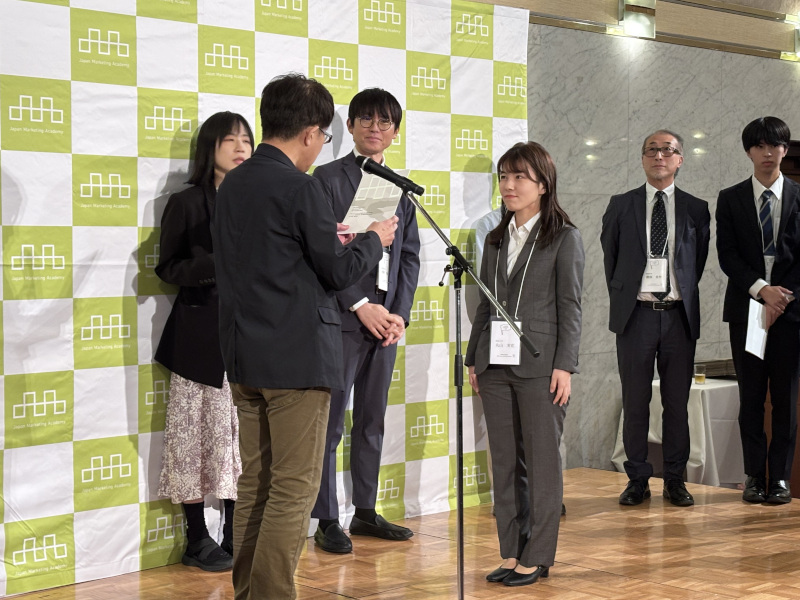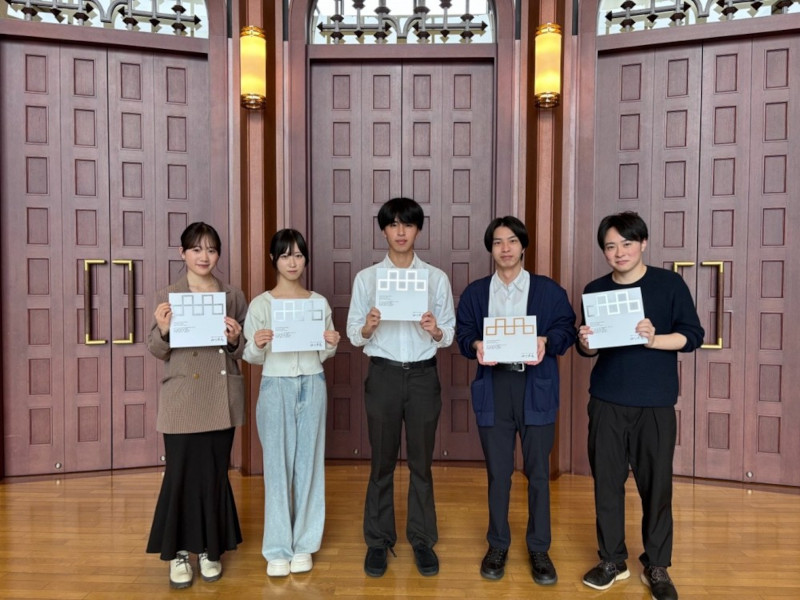[School of Commerce] Two Papers by MARUYAMA, SHIMIZU, and Associate Professor KATO win the Best Oral Paper Award at the Japan Marketing Academy Conference 2025
Nov. 05, 2025

At the Japan Marketing Academy Conference 2025 held on October 12, 2025, the following papers received the Best Oral Paper Award.
Title: Study of effective information provision methods in AI agents: Demonstration from the viewpoint of icons, number of choices, and negative aspects
Author: MARUYAMA Mika and Associate Professor KATO Takumi
Form: Full Paper
Overview: At present, the market for artificial intelligence agents (AI agents) is expanding rapidly, and the performance competition is heating up. However, once a certain level is exceeded, there is a concern that it may reach an excessive level from the viewpoint of consumers. At this point, one of the next necessary viewpoints is user experience (UX), but at present, this knowledge is limited. Then, we formulated the research question: In dialogues with AI agents, who should provide information, how much should they provide, and how should they provide it? and verified this through three randomized controlled trials. In STUDY 1, it was revealed that the effect of the icon design on users’ impression formation is limited in AI agents. In STUDY 2, it was shown that the presentation of the moderate number of options is optimal as it allows users sufficient room for comparison and consideration while avoiding excessive cognitive burden. In STUDY 3, it was effective to present negative aspects alongside recommendations and positive aspects as an element to raise the quality of the proposal. The findings of this research provide valuable insights for the UX design of AI agents, which will become essential sources of competitiveness in the future.

Title: The Impact of Expert-Based Concepts in AI Agents on Service Attractiveness
Authors: SHIMIZU Aoto, AKIMOTO Koki, KASAI Atsushi, HAYASHI Saki, SHIGENO Yura, and Associate Professor KATO Takumi
Form: Full Paper
Overview: The spread of fake news in modern society has been rapidly worsening with the advent of generative AI, and it is now recognized as an urgent global social issue. AI agents have attracted attention as tools for information gathering and fact-checking; however, due to concerns about hallucinations—responses containing false or misleading information—users are still required to verify sources themselves. In other words, the fake news problem has not yet been resolved. This study proposes a potential solution through a service concept that limits the learning scope and usage of AI agents. The research question is: “Does restricting information sources and usage to expert knowledge enhance the attractiveness of AI agents?” To address this, two randomized controlled trials were conducted.
STUDY 1 demonstrated that, within the AI agent concept, reliable information provided by experts enhances perceived attractiveness more than curation or empathy. STUDY 2 examined user experience (UX) related to the attractiveness of expert-based communication by AI agents in medical consultation contexts. The results highlight the value of conceptual design as a new perspective for the AI agent market, where global competition over technological performance continues to intensify.
Related link


